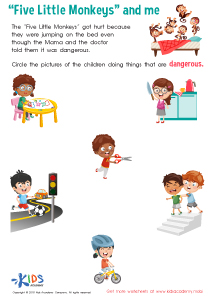Vocabulary expansion Easy Building Vocabulary Worksheets for Ages 6-9
7 filtered results
-
From - To
Discover our engaging "Vocabulary Expansion Easy Building Vocabulary Worksheets" tailored for children ages 6-9! These worksheets are designed to enhance vocabulary skills through fun and interactive activities. Each resource promotes learning through word games, fill-in-the-blanks, and matching exercises, making vocabulary building enjoyable. Our materials support phonetic awareness and comprehension, ensuring that kids develop a strong linguistic foundation. Whether used at home or in the classroom, these worksheets encourage independent learning while reinforcing essential reading skills. Empower your child's language journey and watch their confidence grow as they tackle new words and expressions with enthusiasm! Explore our printables today!
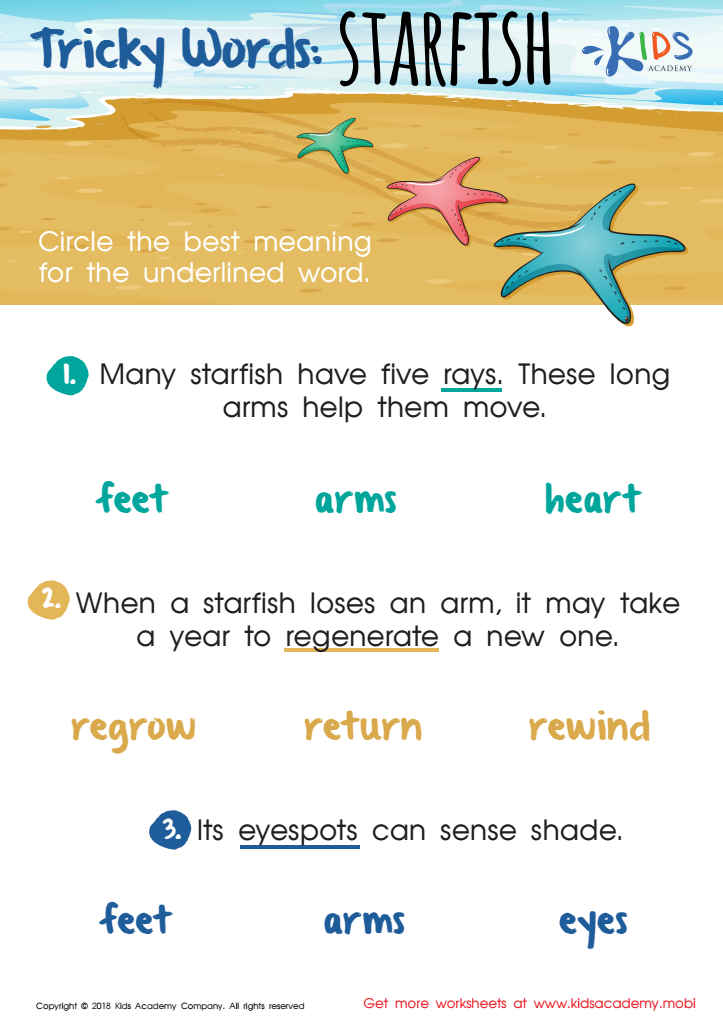

Tricky Words: Starfish Worksheet


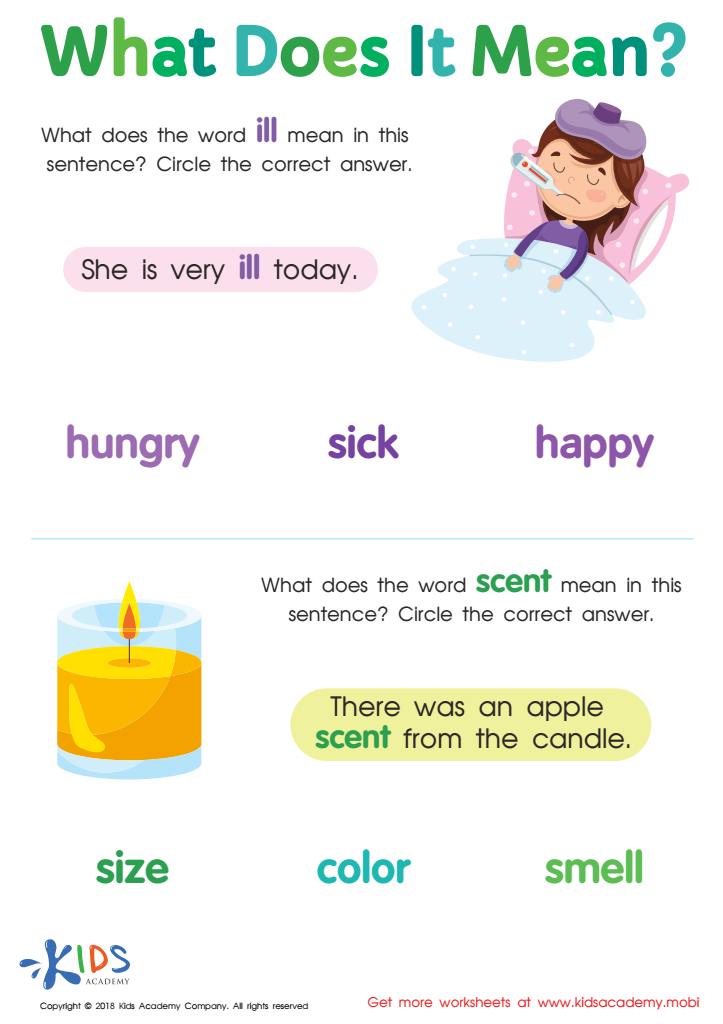

What Does It Mean? Worksheet
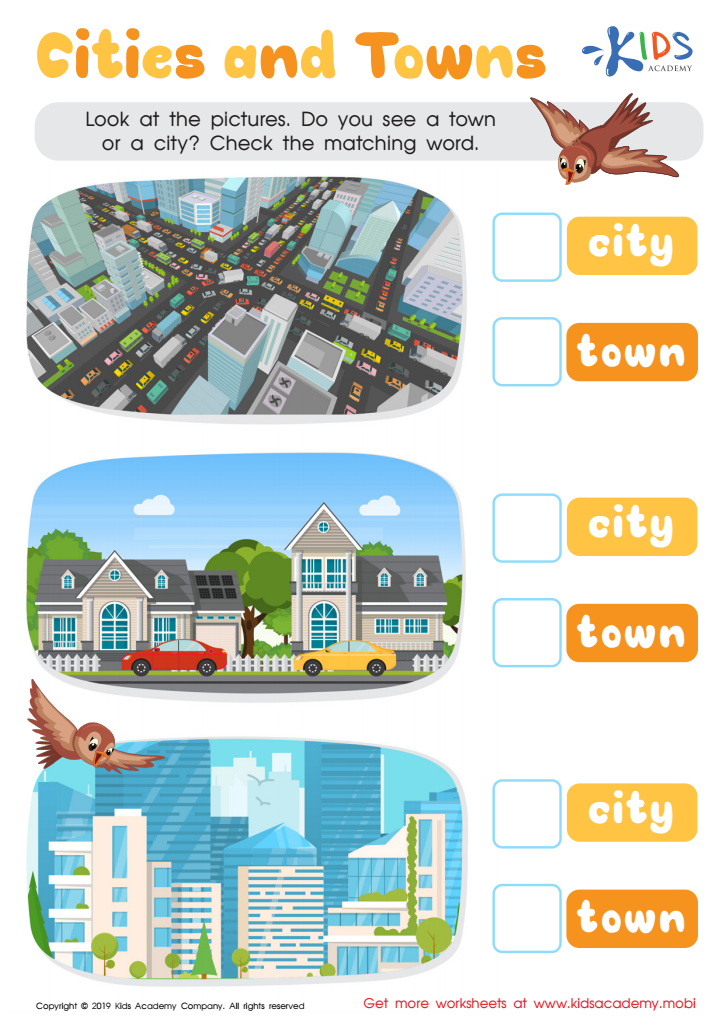

Cities and Towns Worksheet
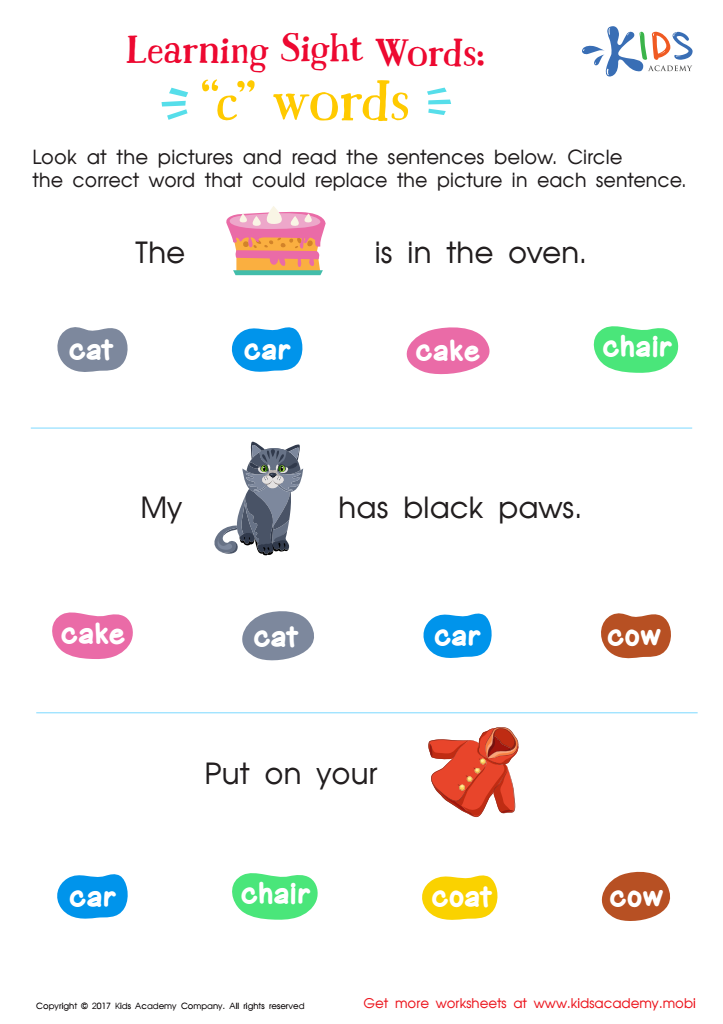

"C" Words Printable Sight Words Worksheet
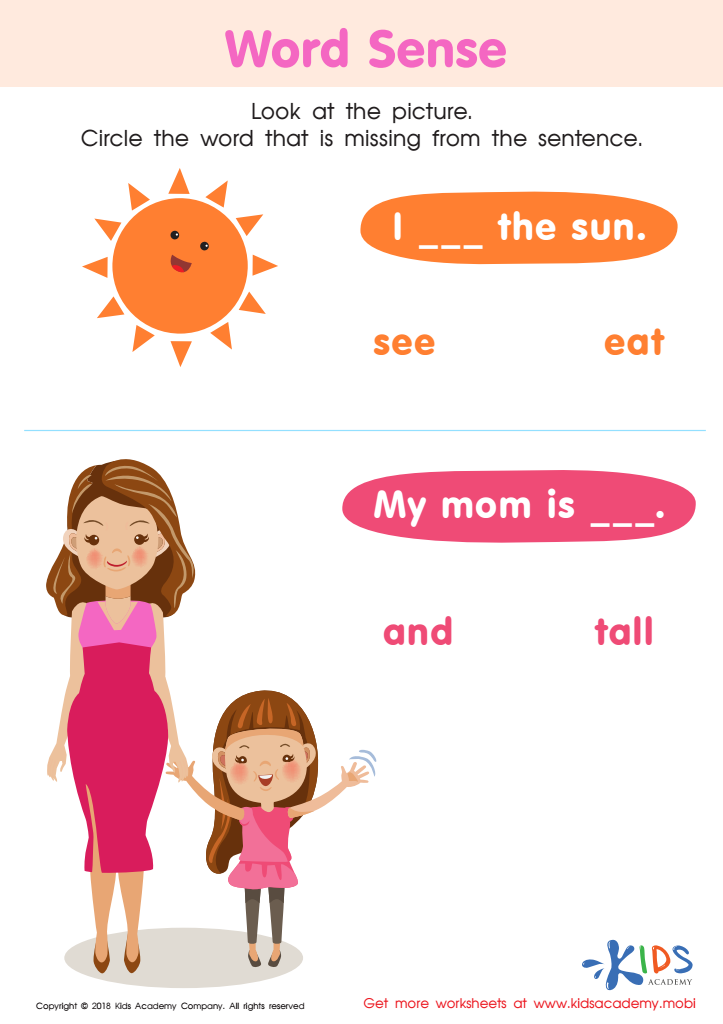

Word Sense Worksheet
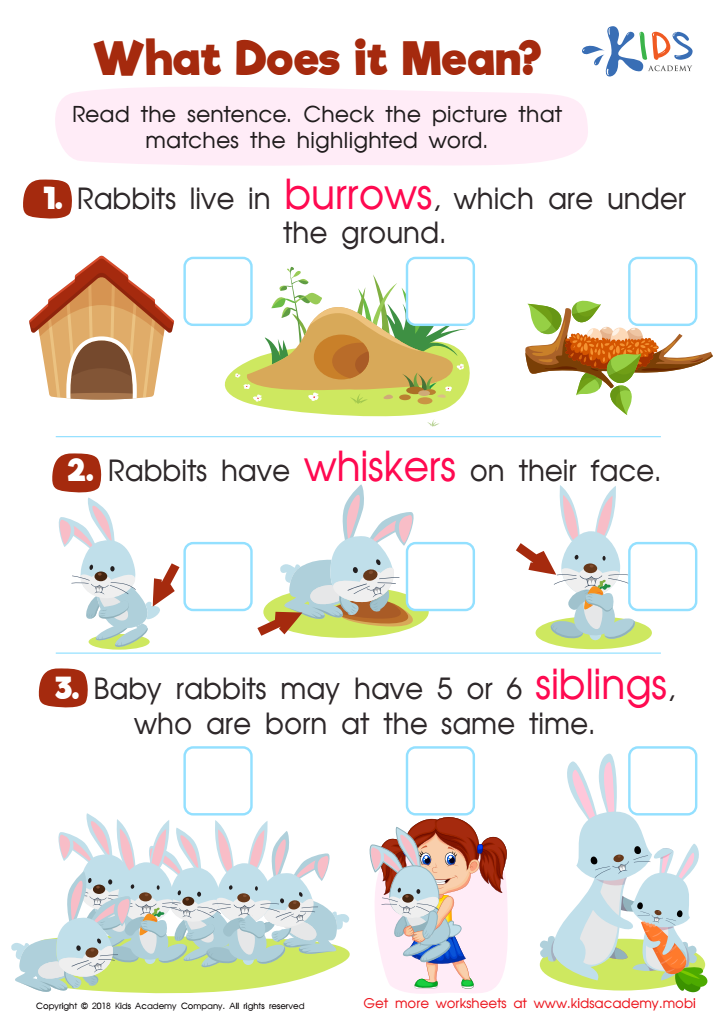

What Does It Mean? Worksheet
Vocabulary expansion is crucial for children aged 6-9 as it lays the foundation for effective communication, reading comprehension, and overall academic success. This age group is at a pivotal stage in language development, where they are beginning to express their thoughts and ideas more clearly. By enhancing their vocabulary, parents and teachers equip children with the tools needed to articulate themselves confidently and understand complex concepts.
Moreover, a rich vocabulary contributes significantly to reading skills. Children with a broader range of words are more likely to understand and interpret texts, leading to a lifelong love for reading. Engaging activities such as word games, storytelling, and interactive discussions can make learning new words fun and enjoyable.
Additionally, vocabulary growth is directly linked to success in other subjects, including math and science, as these areas often contain specialized terminology. Teachers and parents who prioritize vocabulary development help children enhance critical thinking and problem-solving skills, preparing them for future challenges.
Investing time in building vocabulary is an investment in a child’s future. It fosters academic achievement, boosts self-esteem, and equips them with essential communication skills that will serve them throughout their lives.

 Assign to My Students
Assign to My Students
















.jpg)



.jpg)



